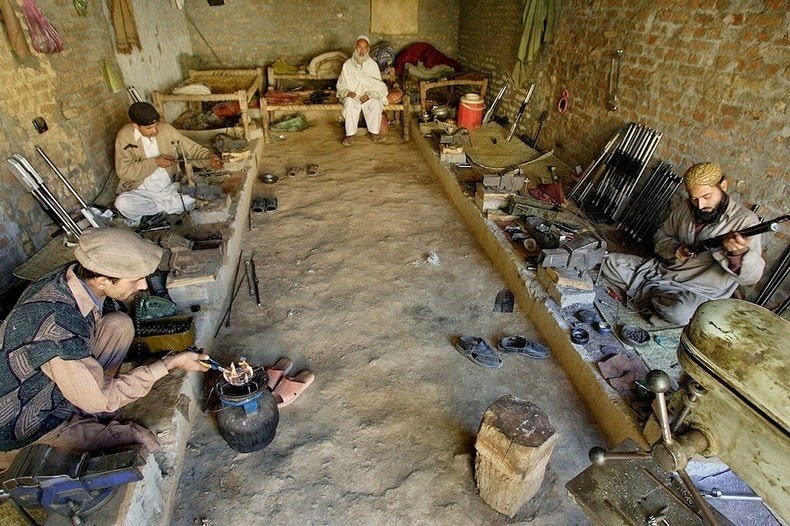Andrew McGregor
March 25, 2008
34-year-old Khalid Khaliq, a resident of Beeston, Leeds (UK), confessed in court to owning a copy of I’alan al-Jihad ‘ala al-Tawaghit al-Bilad (Declaration of Jihad against the Country’s Tyrants), a 180-page training manual copied to CD format. The document was seized in a 2005 raid on the suspect’s home. Khaliq was charged under the Terrorism Act of 2000 with possessing “a document or record containing information of a kind likely to be useful to a person committing or preparing an act of terrorism” (Daily Telegraph, March 16). Khaliq indicated the document had been downloaded from an internet website, but claimed it had been brought into his house by an unnamed friend and that he had not looked at it (Daily Mail, March 11; Independent, March 11). After conviction, Khaliq, an associate of London’s “7/7” bombers, was sentenced to 16 months in prison.
The handwritten Arabic language manual was first seized in an MI5 raid on an abandoned flat in Manchester in 2000. MI5 translated the document and supplied a copy to U.S. officials for use in a terrorism-related trial in 2001. After being used in evidence the manual was declassified and released to the public by the New York Southern District Court under the U.S. Freedom of Information Act (Daily Mail, March 15).
The document contains information on weapons, assassination methods, torture techniques, the use of safe houses, security measures, behavior in prison, communications, transportation, poisons, counter-interrogation techniques, use of counterfeit currency and forged documents, and overt and covert methods of information-gathering. Only the chapter on bomb-making was withheld from publication on the Department of Justice website. Some of the manual’s information appears to have been clipped from American militia movement publications.
According to the manual’s preamble: “The confrontation that we are calling for with the apostate regimes does not know Socratic debates, Platonic ideals, nor Aristotelian diplomacy. But it knows the dialogue of bullets, the ideals of assassination, bombing, and destruction, and the diplomacy of the cannon and machine-gun.” (http://www.usdoj.gov/ag/manualpart1_1.pdf ).
Judge James Stewart of the Leeds court declared the U.S. Justice Department’s decision to publish the document on the internet “extraordinary” and “not something that would be done in this country” (Daily Mail, March 11).
This article first appeared in the March 25, 2008 issue of the Jamestown Foundation’s Terrorism Focus


